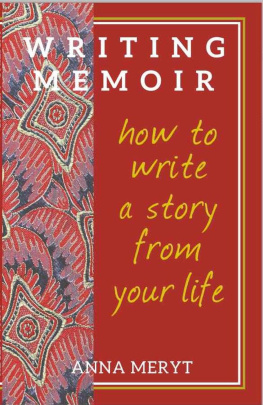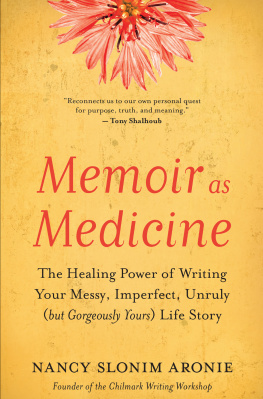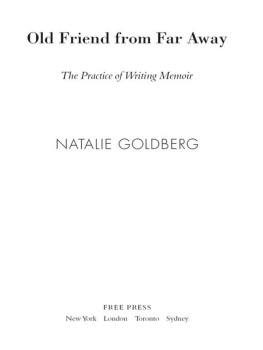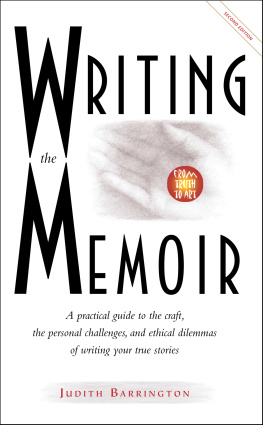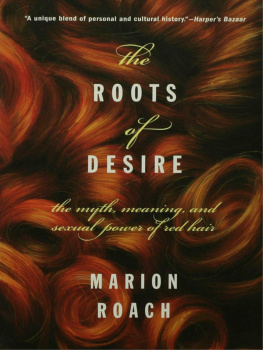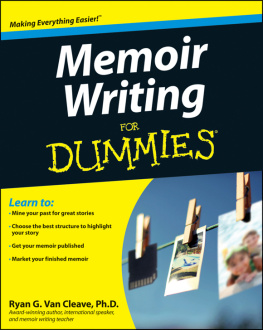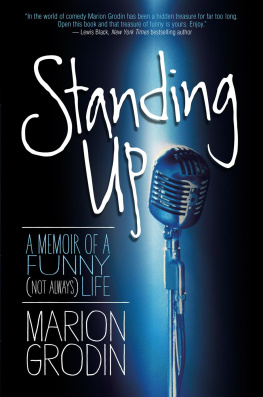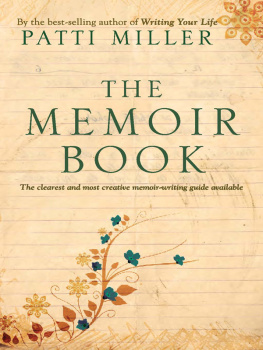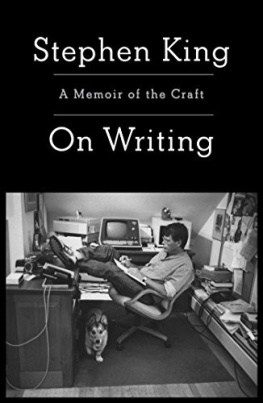Marion Roach Smith - The Memoir Project: A Thoroughly Non-Standardized Text for Writing & Life
Here you can read online Marion Roach Smith - The Memoir Project: A Thoroughly Non-Standardized Text for Writing & Life full text of the book (entire story) in english for free. Download pdf and epub, get meaning, cover and reviews about this ebook. genre: Romance novel. Description of the work, (preface) as well as reviews are available. Best literature library LitArk.com created for fans of good reading and offers a wide selection of genres:
Romance novel
Science fiction
Adventure
Detective
Science
History
Home and family
Prose
Art
Politics
Computer
Non-fiction
Religion
Business
Children
Humor
Choose a favorite category and find really read worthwhile books. Enjoy immersion in the world of imagination, feel the emotions of the characters or learn something new for yourself, make an fascinating discovery.

- Book:The Memoir Project: A Thoroughly Non-Standardized Text for Writing & Life
- Author:
- Genre:
- Rating:3 / 5
- Favourites:Add to favourites
- Your mark:
The Memoir Project: A Thoroughly Non-Standardized Text for Writing & Life: summary, description and annotation
We offer to read an annotation, description, summary or preface (depends on what the author of the book "The Memoir Project: A Thoroughly Non-Standardized Text for Writing & Life" wrote himself). If you haven't found the necessary information about the book — write in the comments, we will try to find it.
by Marion Roach Smith
A recent study revealed that the Number 1 thing that baby boomers want to do in retirement is write a book....about themselves. Its not that every person has lived such a unique or dramatic life, but we inherently understand that writing memoir-whether its a book, blog, or just a letter to a child-is the single greatest portal to self-examination.
While there have been other writing books, theres been nothing like Marion Roach Smiths THE MEMOIR PROJECT. Marion has written four books and shes been teaching a sold-out memoir writing class for 13 years. Her new book is a disarmingly frank, but wildly fun, distillation of all the unsentimental lessons that WORK. Tired topics like writing exercises, morning pages and writers block are replaced with quirky, provocative tactics that teach you to write with purpose.
Previously self-published in April 2010 (under the title Writing What You Know: Realia), the book has already proven hugely popular, and with its new title and updated content, it is sure to find an even bigger and even more enthusiastic audience.
117 pages
Published June 9th 2011 by Grand Central Publishing
Review
Smith (The Roots of Desire, 2006, etc.) helps kick-start the writing process.
Everybody has a story to tell. Some people dream of putting their stories in a book while others want to blog, write letters or record family history. Smith, who is also a workshop teacher, gives the honest nuts and bolts of memoir writing. She does not use standard and stale exercises or prompts to fill the pages of this slim volume, but rather a blend of anecdotes and unusual tips to help would-be writers vomit up a draft. What makes this guide stand out from the rest is its complete lack of academic posturing. Smith does not constantly drop famous names or drone on about Paris. Instead, the author uses real, plainspoken examples from her life and writing, such as the memorable story of her mothers struggle with Alzheimers. Seasoned writers should proceed with caution: Anyone who has taken Composition 101 will have heard much of this advice before, such as write what you know and show, dont tell. But readers looking for a push in the right direction will find Smiths instructions highly accessible and inspiring. Her first-person narrative style is breezy and friendly, and the beginning lays out the three overarching rules for memoir writing. Chapters have catchy subtitles, with easy-to-understand examples, from how to choose a subject to style to editing. Other advice includes a list of go-to reference materials and how to navigate writing about sex.
Spare but practical resource for beginners--a good reference for library programs or community workshops.
Marion Roach Smith: author's other books
Who wrote The Memoir Project: A Thoroughly Non-Standardized Text for Writing & Life? Find out the surname, the name of the author of the book and a list of all author's works by series.

